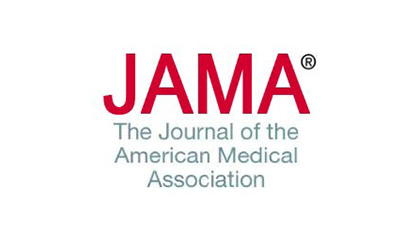
BIDMC launches pilot, advocates for openness
Writing for “A Piece of My Mind,” appearing April 2 in the Journal of the American Medical Association (JAMA), lead author and Beth Israel Deaconess Medical Center psychiatrist, Michael Kahn, MD, urges mental health clinicians to begin sharing the visit notes they write with their patients.
“Nationally, the momentum is shifting in favor of transparency in the medical record, but understandable caution and controversy remain when it comes to mental health notes,” says Kahn, who is also an Assistant Professor of Psychiatry at Harvard Medical School.
Reflecting the impact of the OpenNotes initiative, more than two and half million Americans, including patients at MD Anderson, Mayo Clinic, Cleveland Clinic, the Department of Veteran’s Affairs (VA) and BIDMC now have access to their medical notes. But, with the exception of the VA, medical institutions and systems do not share notes written by psychiatrists, psychologists and social workers.
“We believe that such exclusions are unnecessary,” write the authors.
Kahn and colleagues acknowledge that offering access to mental health notes presents new challenges. “Inviting patients to read what clinicians write about their feelings, thoughts and behaviors does seem different from sharing assessments of their hypertension or diabetes,” and that for some patients, access could carry more risk than benefit. Still, they suggest, for the vast majority of patients, reading mental health notes could have an overall positive impact on their health and health care.
“Patients’ self-evaluations are often more negative than those of their clinicians,” write the authors. They say access to the notes has the potential to help patients feel less alone and diminish the shame patients can experience with a mental health diagnosis.
“For many patients the opportunity to read a treatment note can help improve accuracy and reduce stigma,” says Kahn. “And that may encourage patients to address their mental health issues more actively.”
“Anecdotally, some doctors have commented that inviting their patients to see the problems in writing was far more effective in catalyzing behavior change than was discussing them,” write the authors. They suggest that reading the note may become an important part of the treatment process for patients with mental illness.
Outpatient medical notes have been available at BIDMC since July 2013. Patients are invited to read their notes using a secure, confidential website. The medical center began piloting access to mental health notes in March 2014.
“In psychiatry, we have initiated a pilot program involving a portion of the patients we care for on an ongoing basis. From this group, we hope to learn more about how our patients respond and about any unforeseen problems our clinicians encounter. In this way, we can be thoughtful and deliberate as we implement OpenNotes,” says William Greenberg, MD, Chief of Psychiatry. “Based upon what we find, we hope to maximize the benefits of the program as we involve more and more of our patients.”
The move toward greater access in all areas of care at BIDMC and a rapidly growing number of institutions nationally, was stimulated by the positive findings of the OpenNotes study, reported in 2012. Supported by the Robert Wood Johnson Foundation and led by Tom Delbanco, MD and Jan Walker, RN, MBA, both active in primary care, patients in the study reported, among other things, that access to the notes written by primary care physicians helped them feel more in control of their own health care, understand their health and medical conditions better and improve in taking their medications as prescribed.
“As primary care clinicians, we have a lot of experience providing mental health care. In fact, primary care is where the majority of mental health care happens. We’re confident that the note can be as valuable to our patients with mental illness as it for patients with other chronic conditions,” says Delbanco. “Equally as important,” adds Walker, “Is that we’re hearing overwhelmingly from patients that they want their notes, so it’s really up to us as health care providers to figure out how to make that happen.”
In addition to Kahn, authors include Sigall K. Bell, MD, Jan Walker, RN, MBA, and Tom Delbanco, MD, Department of Medicine at Beth Israel Deaconess Medical Center and Harvard Medical School.
Beth Israel Deaconess Medical Center is a patient care, teaching and research affiliate of Harvard Medical School, and currently ranks third in National Institutes of Health funding among independent hospitals nationwide.
The BIDMC health care team includes Beth Israel Deaconess Hospital-Milton, Beth Israel Deaconess Hospital-Needham, Beth Israel Deaconess Hospital-Plymouth, Anna Jaques Hospital, Cambridge Health Alliance, Lawrence General Hospital, Signature Health Care, Commonwealth Hematology-Oncology, Beth Israel Deaconess HealthCare, Community Care Alliance, and Atrius Health. BIDMC is also clinically affiliated with the Joslin Diabetes Center and Hebrew Senior Life and is a research partner of Dana-Farber/Harvard Cancer Center. BIDMC is the official hospital of the Boston Red Sox. For more information, visit www.bidmc.org.
Read the OpenNotes team’s “A Piece of My Mind” article here.



